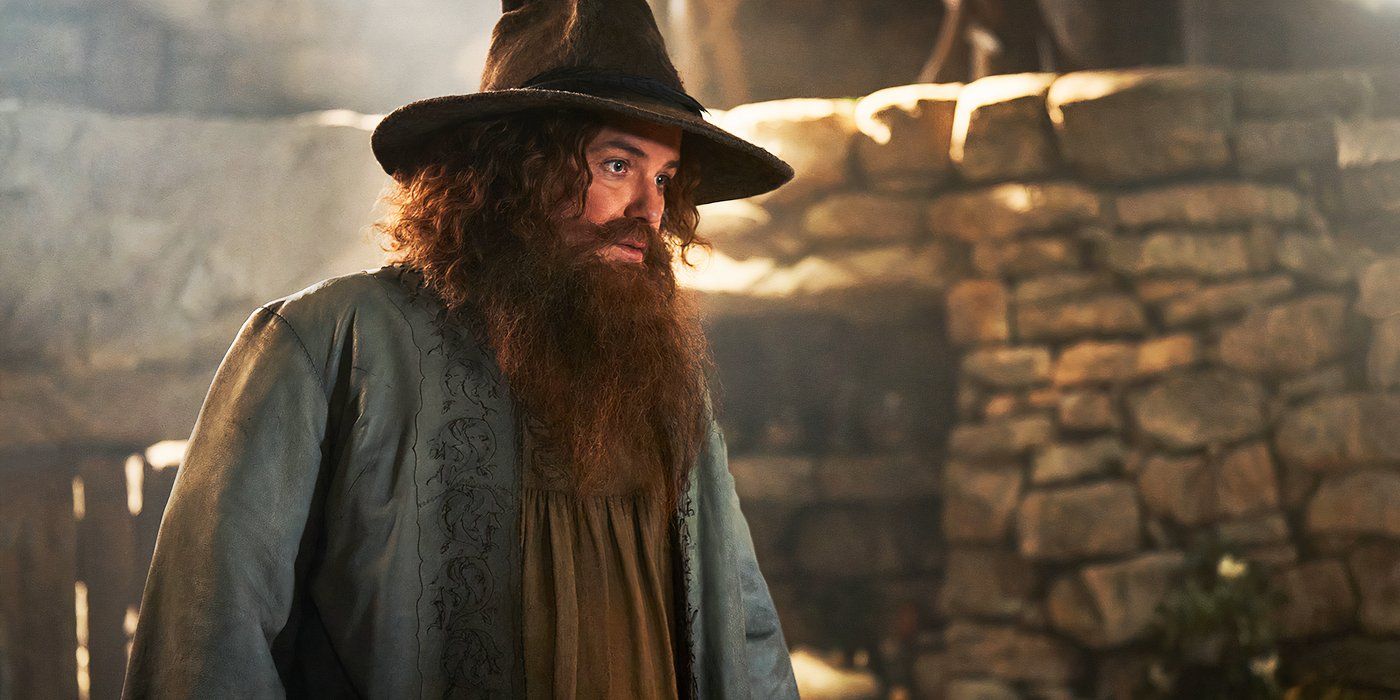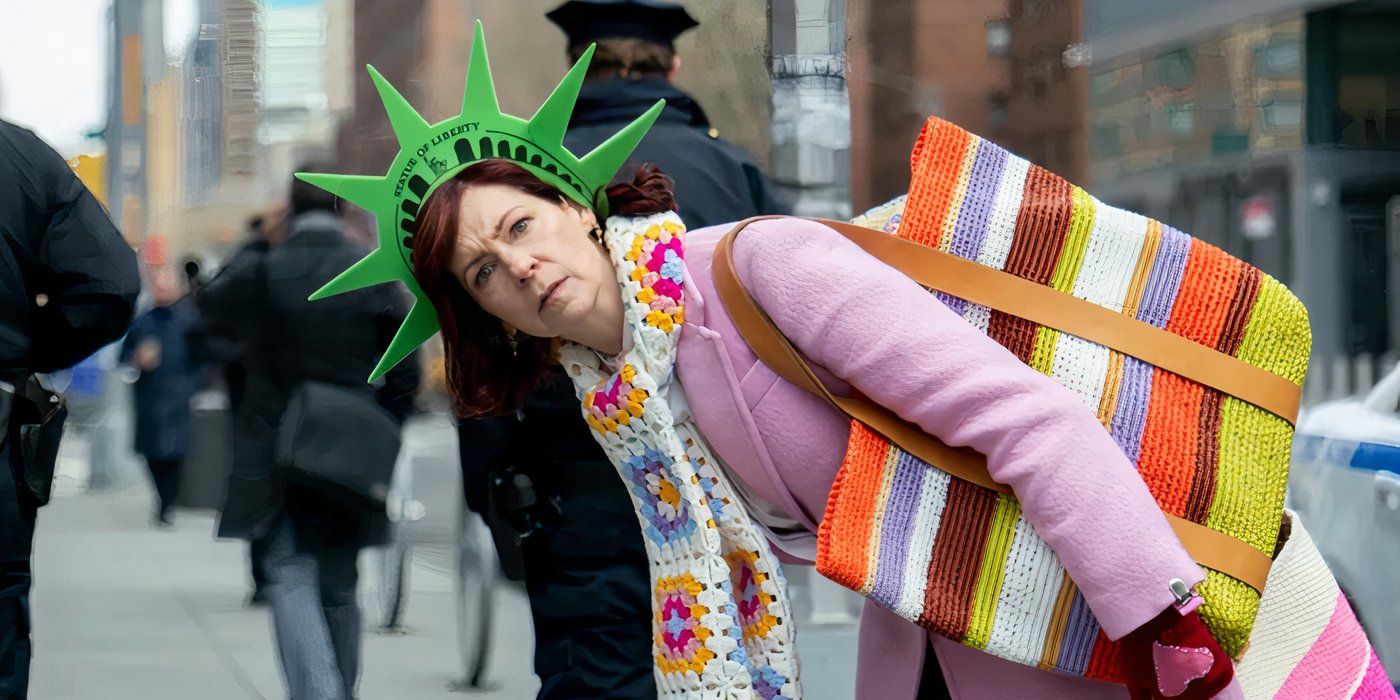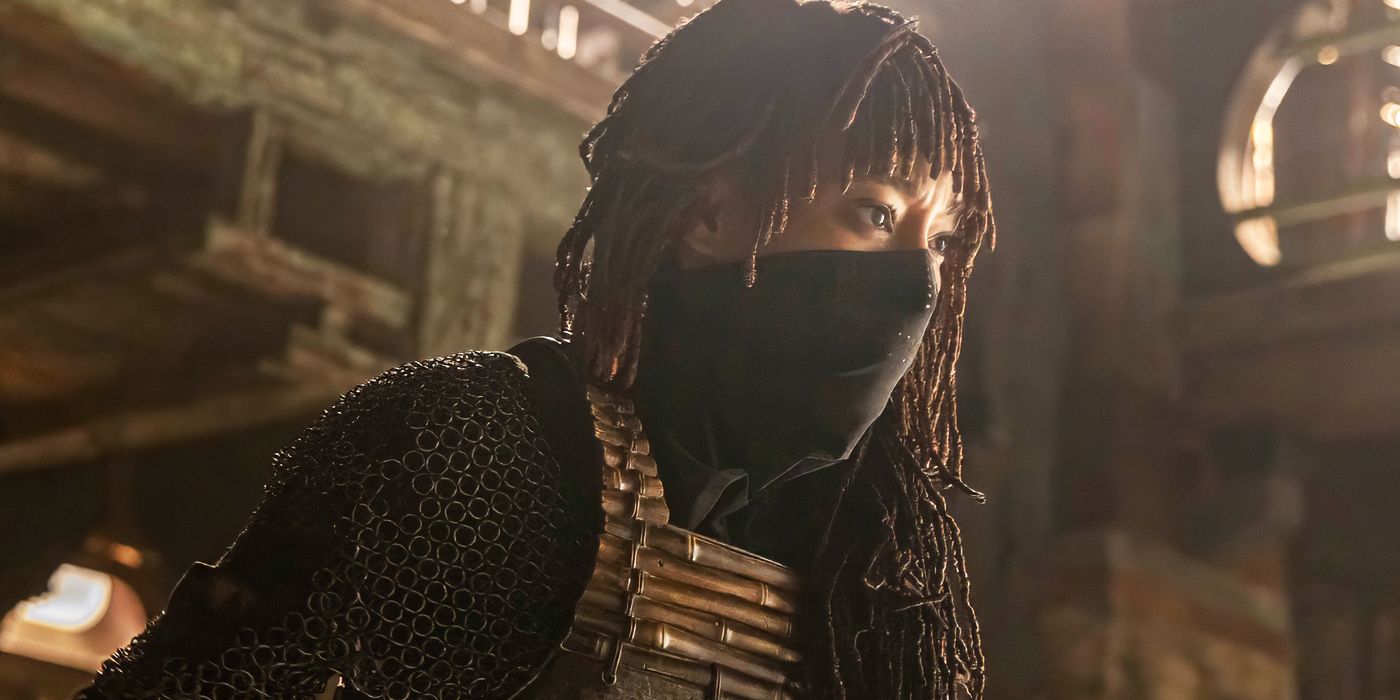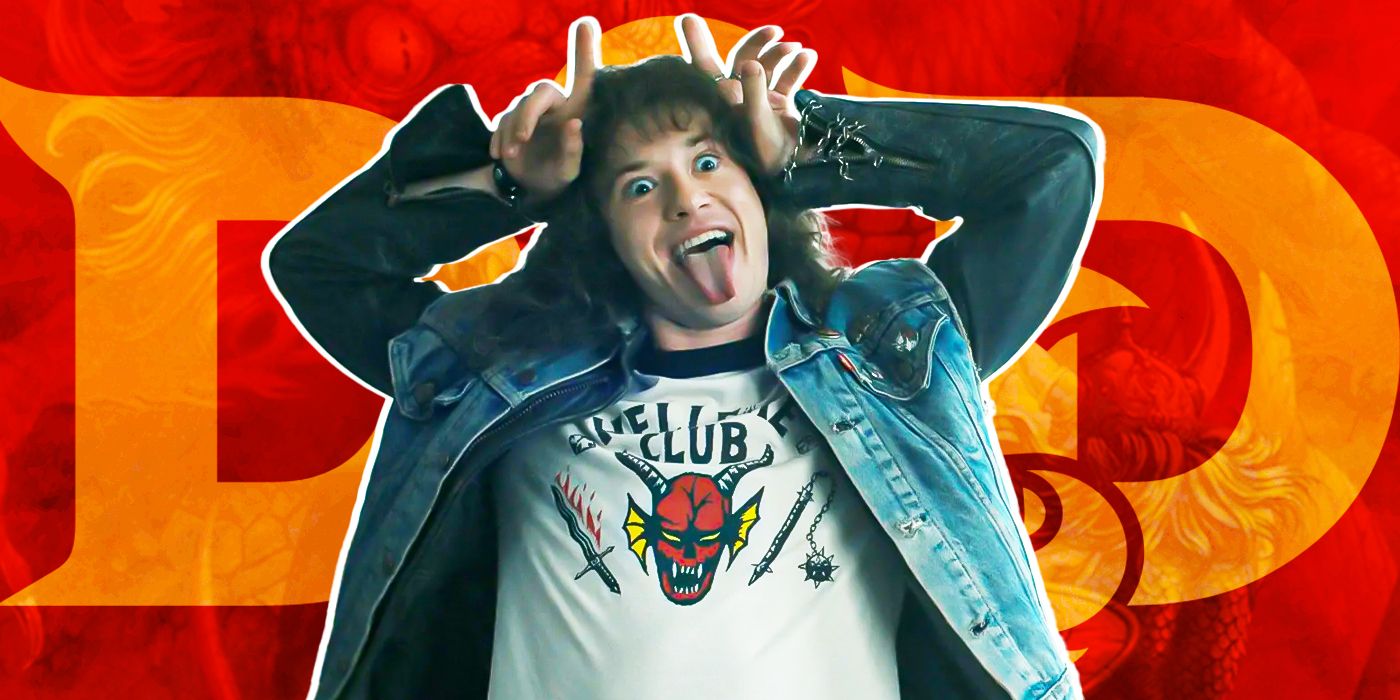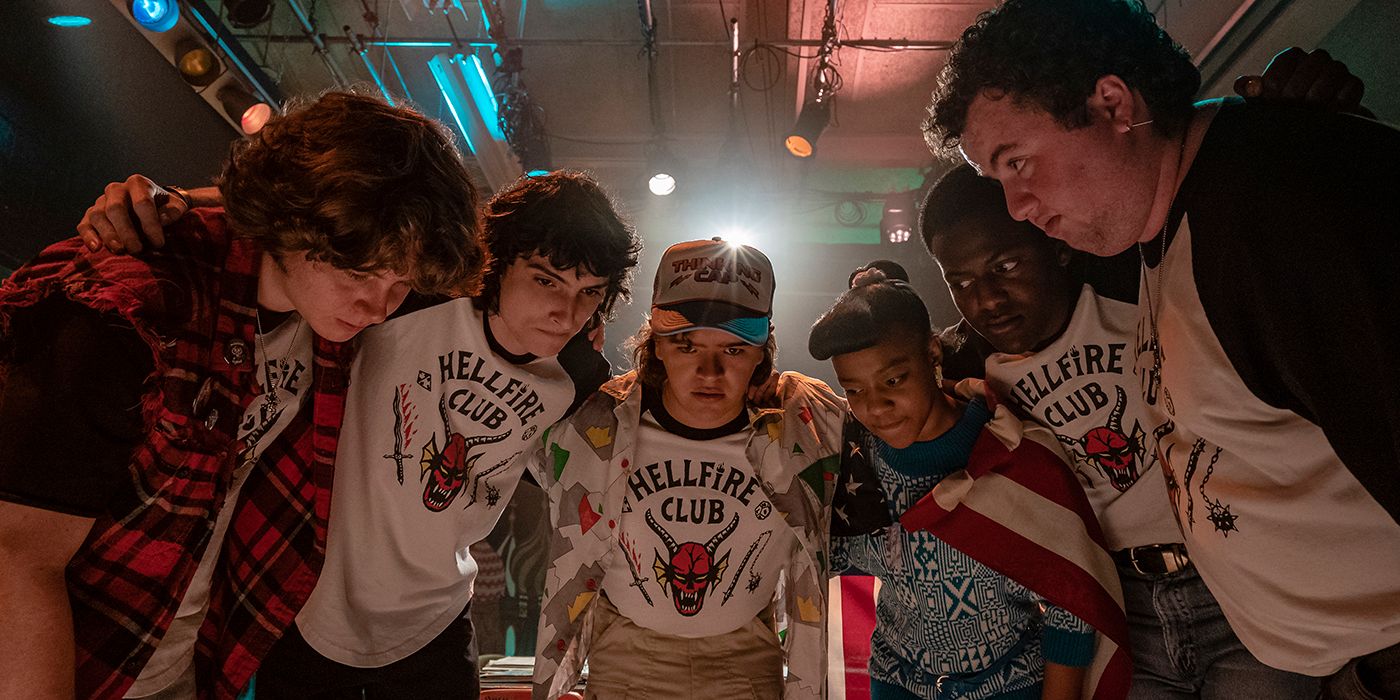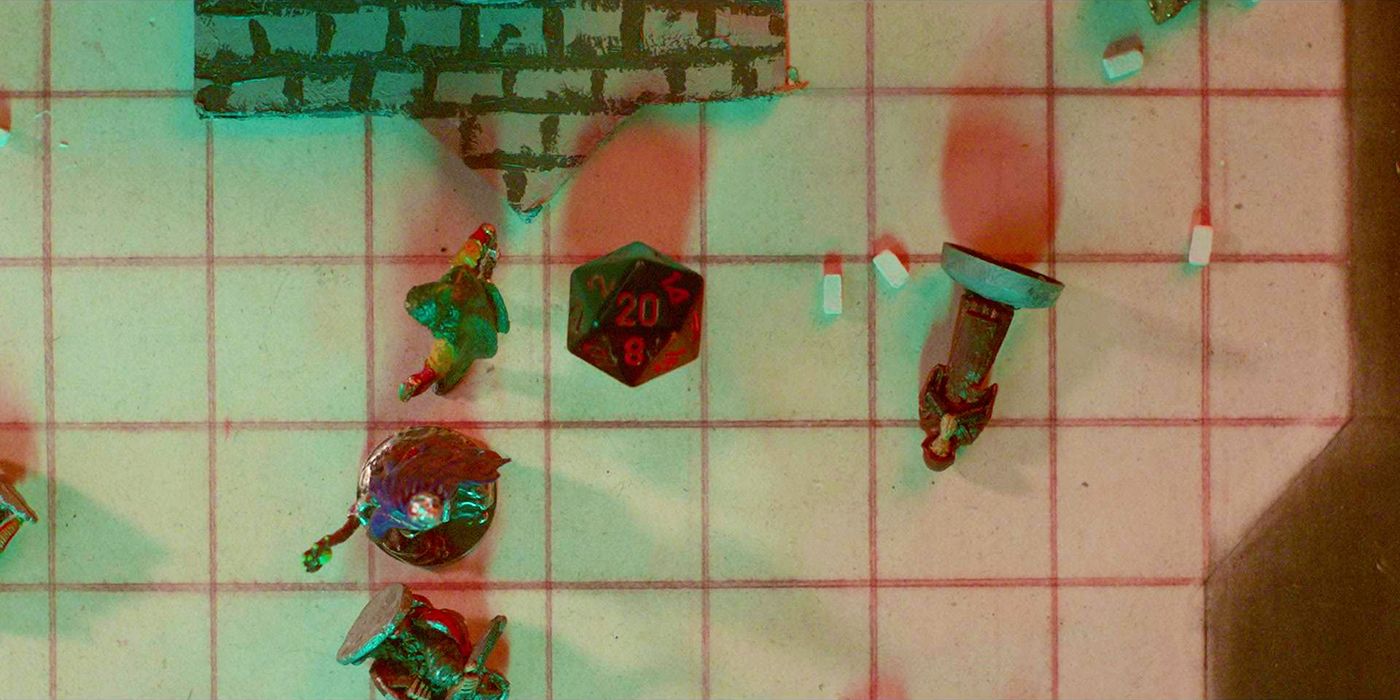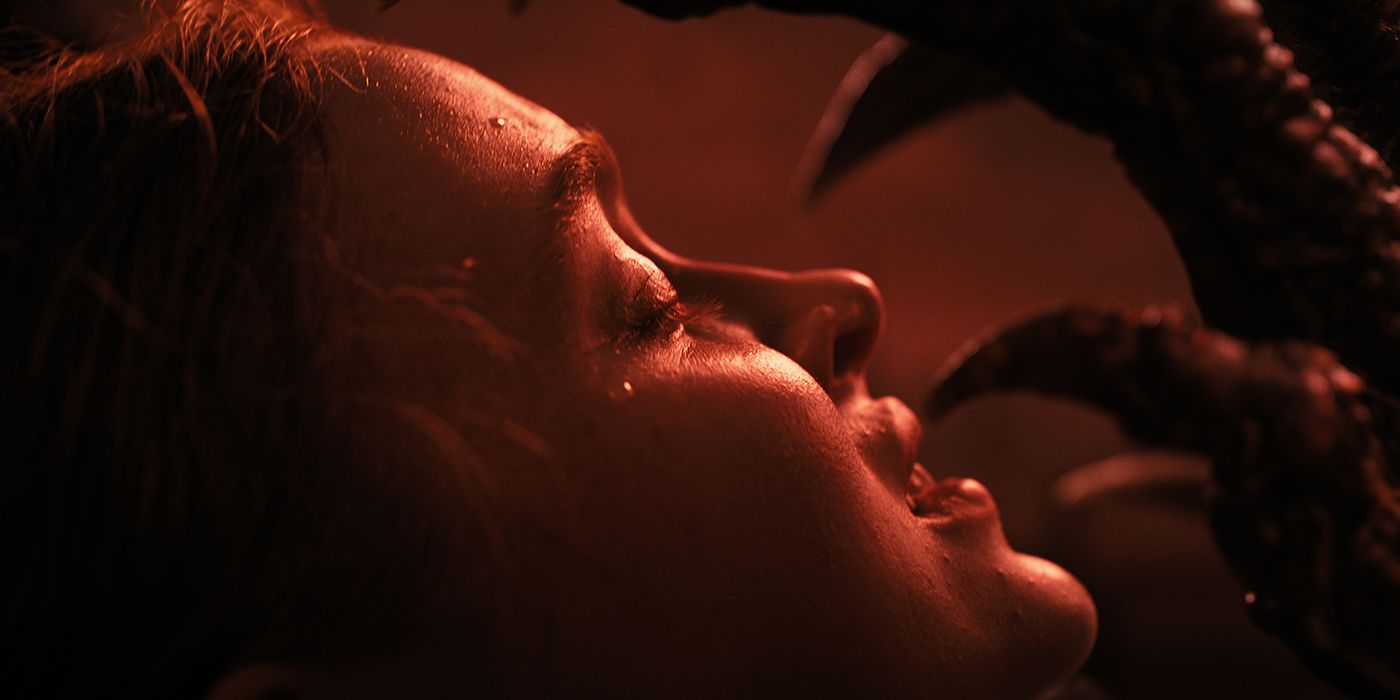Like many, I spent a significant portion of the last two years finding new hobbies and interests to delve into and find joy in as we all searched for the light in a world increasingly shrouded in darkness. Enter: Dungeons and Dragons (DnD). The fantasy role-playing game first hit the scene in the 1970s and rose to popularity among nerds (affectionate) in the 1980s, as any Stranger Things fan may already know. Thanks to Stranger Things and the rise of popular table-top roleplay games (TTRPG) actual plays like Critical Role and Dimension 20, DnD has had a renaissance of sorts in recent years.
Getting into DnD as a way to stay connected with friends during the pandemic makes Stranger Things Season 4 the first installment of the series that I've watched with a working knowledge of the game — and it's like seeing the show in a whole new light. I've always admired how The Duffer Brothers manage to balance a vast ensemble of characters with various storylines that are both connected and singular, before bringing the whole party together for the big finish. While lots of shows are capable of this kind of storytelling, for me, Stranger Things is the show that executes it the best, and I believe that's because of the influence DnD has on the series and how it's written.
To be a Dungeon Master, you have to be an excellent storyteller — world-building, character creation, and crafting narrative arcs for your players are all your responsibility. These are all things that apply quite perfectly to writing television, making the Duffers essentially the Dungeon Masters of Stranger Things. Then you've got the adventuring party: Will (Noah Schnapp), Mike (Finn Wolfhard), Lucas (Caleb McLaughlin), Dustin (Gaten Matarazzo), Eleven (Millie Bobby Brown), Max (Sadie Sink), Joyce (Winona Ryder), Hopper (David Harbour), Nancy (Natalia Dyer), Jonathan (Charlie Heaton), Steve (Joe Keery), and Robin (Maya Hawke). In gaming terms, these are the player characters — the characters whose decisions and actions are controlled by someone actively playing the game. While arguments could be made for Eleven being Stranger Things' main character, one thing that's so appealing about the show is the fact that this entire ensemble is made up of "main" characters.
In that vein Stranger Things, also has a delightful collection of non-player characters or NPCs, including Lucas' younger sister Erica (Priah Ferguson), Mike and Nancy's mom Karen Wheeler (Cara Buono), fan favorites like Season 3's Alexei (Alec Utgoff), Season 2 superhero Bob Newby (Sean Astin), newcomer Eddie Munson (Joseph Quinn), the ever comical Murray Bauman (Brett Gelman), and many more. These are the characters who aren't always directly involved in the action, but their presence enriches the story in essential ways and the Dungeon Master can call upon them when you least expect it to deliver some crucial information, bring levity to the story, or become a tragic loss meant to motivate the party to defeat the ultimate evil.
As each season of Stranger Things begins, we catch up with our adventuring party at a seemingly peaceful time in their lives, be it DnD games just before Christmas, dressing up for Halloween, summer trips to the mall, or Season 4's setting: the cusp of spring break. Our ensemble is generally all together before being split into smaller parties and sent on side quests that all build towards the big combat at the end of each season against the campaign's final boss. Here the Duffer Brothers call upon DnD once more to name the villains of The Upside Down. In Season 1, the boys used the game as a metaphor to understand the horrors that were happening in their small town and that tool has been a touchstone for the narrative throughout the whole show.
The Demogorgon, Shadow Monster, Mind Flayer, and now Vecna (an Arch Lich) all get their names — and some of their skills — from the popular tabletop game. Stranger Things takes the basics of these DnD monsters and fleshes them into actual threats against our heroes, and the town of Hawkins, in a way that fits the show's mystery and narrative. Each year the villains become more powerful from the demogorgon, also known in DnD as the Prince of Demons, to this year's terrifying Vecna. Like the DnD character, the Stranger Things monster was once a human with powerful magical abilities who later becomes an evil creature capable of terrible things. Both versions of Vecna use secrets as vulnerabilities to destroy whomever they please.
The metaphor continues as the classes that the kids picked for themselves reflect aspects of their actual personalities. According to Mike in Season 2, he is a Paladin which is reflected in Mike's adherence to his personal code of conduct, sometimes to a fault. Will being a Cleric makes him susceptible to divine magic and deepens his connection to the Upside Down. Dustin is a Bard, always making sure everyone has snacks and is in high spirits — this also lends itself to his musical number with Suzie in Season 3. He also has vast knowledge, typically being the problem solver, which lends itself to a high wisdom Bard. Lucas is a Ranger which makes him an excellent fighter and a fierce protector.
While Eleven never actually plays with the boys, Mike refers to her as a Mage because her powers are essentially magic. Max calls herself a zoomer since she also doesn't play, but she fits in as a Rogue as her intelligence and out-of-the-box thinking make her an excellent party member — despite Mike's protests. Erica later also introduces herself as a Rogue when joining The Hellfire Club for their final combat telling Eddie, "My name is Lady Applejack, and I'm a chaotic good half-elf rogue, level 14. And I will sneak behind any monster you throw my way and stab them in the back with my poison-soaked kukri."
Rather than relying upon these elements, the Duffers use them to enrich the story that they're telling. Making for an entertaining viewing experience even if you aren't familiar with the game, and an enhanced one if you are. Each season of the show is laid out like a DnD campaign — or rather a handful of mini-campaigns within the overall arc. You get mini-adventuring parties out of each group that the ensemble cast splits into, and each of their storylines gets fairly equal weight throughout the season. Though seemingly siloed for several episodes, the various storylines all connect with each other and to the ultimate arc of the season. Because each storyline is treated like its own campaign, each of them keep your interest as the episodes cycle through each group of characters.
Beyond metaphors and references, DnD's influence on Stranger Things gives the show something much greater than storytelling tools. At the heart of both DnD and Stranger Things is a deep sense of community and found family. Dungeons and Dragons is an entertaining game, but it's also a tried and true bonding experience that teaches you communication skills and the importance of collaboration and community. It creates an unshakable connection between its players — when Erica is asked if she knows Dustin she responds with: "Know him? I've bled with him." Anyone who's played DnD will tell you the same about their party members. That sense of family exists between the entire ensemble, and it extends out to the audience.
When I sit down to watch Stranger Things, I feel like I'm catching up with old friends — old friends going on thrilling, sometimes terrifying adventures, but friends nonetheless. The camaraderie between this group of characters makes you feel like part of their party. Your heart aches when they're defeated, and you cheer for their victories. It's why scenes like Erica rolling a Nat-20 at the same time Lucas sinks the winning three point shot, Max's friends using her favorite song to help her escape Vecna, and Joyce rescuing Hopper from the Russian Demogorgon are so effective. Stranger Things is a show that evokes your emotions as if you're a part of it. Both DnD and Stranger Things effectively use teamwork and collaboration through compelling characters and relationships to effectively get to the core of what makes anything worth doing — love. Love of the game, love of these characters, and love of your fellow humans is what drives us all. The Duffer Brothers have infused their love for DnD into Stranger Things and in doing so have made the show better for it.
Stranger Things Season 4 Volume 2 arrives on Netflix on July 1.


